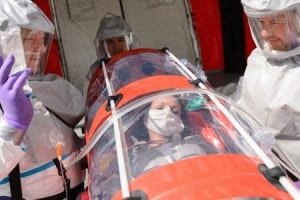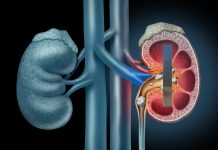ATLANTA, GA – In breaking news, the Centers for Disease Control & Prevention (CDC) has discovered a new virus that causes medical noncompliance, thereby explaining a centuries-old mystery of why patients have not taken their medications or complied with recommended therapies.

“We thought it was just a coincidence that so many patients didn’t care about their health, those labeled as noncompliant,” said Director of the CDC Thomas Frieden. “Turns out it’s not the patients to blame; it’s a virus. Boys and girls, do we have an epidemic on our hands.”
According to researchers, the noncompliance or NC virus infects the frontal cortex, thus rendering an infected patient’s health-related decision-making centers useless. In a mere 24 hours, the NC virus causes patients to stop taking their medications, fail to get refills on their medications once they run out, and get distracted by more “important things” like illegal drugs or the latest electronic gadgets.
“To think, we thought medical noncompliance was caused by patients themselves,” said hospitalist Jason Satterfield. “We owe an apology.”
The CDC has issued a warning stating that the NC virus is highly contagious. Any patient who hasn’t taken their meds or established a primary care physician in the past 20 years should be suspected of having NC virus. For the safety of the general public, these patients should be placed into an isolation unit (airborne and contact) with infectious diseases and the CDC promptly contacted.
The CDC is devoting more resources to researching the NC virus in hopes of developing a vaccine or a cure. As for now, the CDC says that early infection can be responsive to reason (“If you don’t take your meds, you could have a stroke, heart attack, maybe even die.”). Unfortunately, those with late infection do not respond to reason and are likely to be co-infected with the AMA virus, which is associated with both leaving the hospital on their own terms and hydromorphone deficiency.







